- TECHSWU
- Posts
- TECHSWU #29
TECHSWU #29
Welcome to TECHSWU, your go-to destination for all things tech that matter in your daily life! From gadgets to software, we cover it all with a focus on what's relevant and usable now. Tune in to our YouTube channel, daily newsletter, and podcast for the latest updates and insights on the tech you use every day. Stay connected with TECHSWU and stay ahead in the world of technology



Artificial intelligence (AI) has often been seen as a job destroyer, but a new study suggests that it can actually help people keep their physical jobs for longer. Contrary to popular belief, AI is not just about replacing human workers with robots; it can be a force for augmentation and assistance. Researchers at MIT found that integrating AI into physical tasks can significantly improve the physicality and productivity of workers, aiding them in performing their jobs more effectively and reducing physical strain. Some highlights from the study include:
• AI systems can assist workers in precision tasks by improving their accuracy and reducing errors.
• Wearable AI devices can provide real-time guidance and feedback to workers, enhancing their performance and safety.
• Collaborative robots, or cobots, can work alongside humans, enabling them to carry out physically demanding tasks and reducing the risk of injury.
• AI-powered exoskeletons can amplify human strength, allowing workers to carry heavier loads and reducing fatigue.
By leveraging AI technologies, businesses can create a healthy balance between humans and machines, enabling workers to stay in physically demanding jobs for longer without compromising their well-being.

Rokid is set to launch a crowdfunding campaign on Kickstarter for its AR Lite spatial computing glasses. These glasses are incredibly lightweight, comfortable, and intuitive, challenging the notion that spatial computing devices must sacrifice wearability. Weighing only 75 grams, the AR Lite glasses can transform the user experience on Android phones, iOS devices, and Macs. The crowdfunding campaign follows the success of Rokid's consumer-grade AR glasses campaign in 2021.
Some highlights from the article include:
• The AR Lite glasses are lightweight and comfortable, providing an improved user experience.
• Rokid previously had success with a crowdfunding campaign for its consumer-grade AR glasses.
• The crowdfunding campaign will offer pre-orders for the AR Lite suite, which is a Personal Space Computing Suite.
• The AR Lite glasses have implications for the consumer electronics and augmented reality industries.
• Crowdfunding platforms play a role in driving innovation for wearable technology.
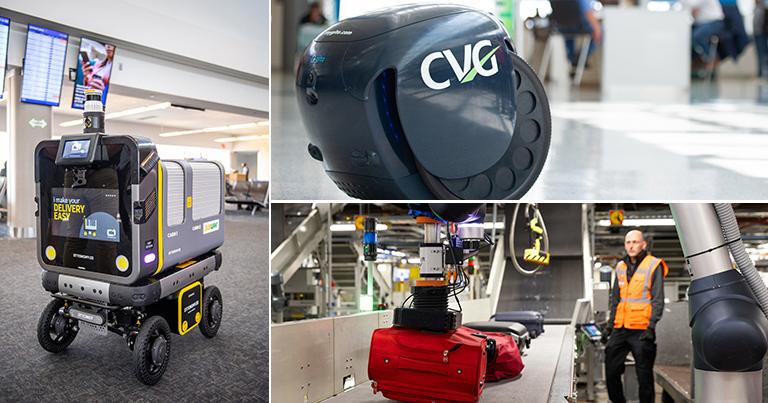
Alaska Airlines, CVG, United, Schiphol, and Southwest Airlines are exploring the transformative impact of robotics, automation, and AI to enhance operational efficiencies and improve the customer experience in the aviation industry. The airlines are utilizing robotics technologies in various ways, such as virtual travel assistants, proactive customer service, and AR-enabled wearables.
• Alaska Airlines is preparing for a "Proactive Era" where robotics help detect and prevent irregular operations and customer service is "super-charged" with guest insights provided through AR-enabled wearables.
• CVG Airport is focusing on automating airport activities and equipping employees with tools to boost efficiency and take on high-value responsibilities, such as customer engagement.
• United Airlines sees robotics as a way to transform baggage handling and create a safer work environment for employees.
• Schiphol Airport is using collaborative robots to improve baggage handling operations and sees a future where robotics and AI can transform operations using predictive data analysis and computer vision.
• Southwest Airlines believes that robotics and AI can streamline operations, reduce costs, and enhance safety in the airline industry.
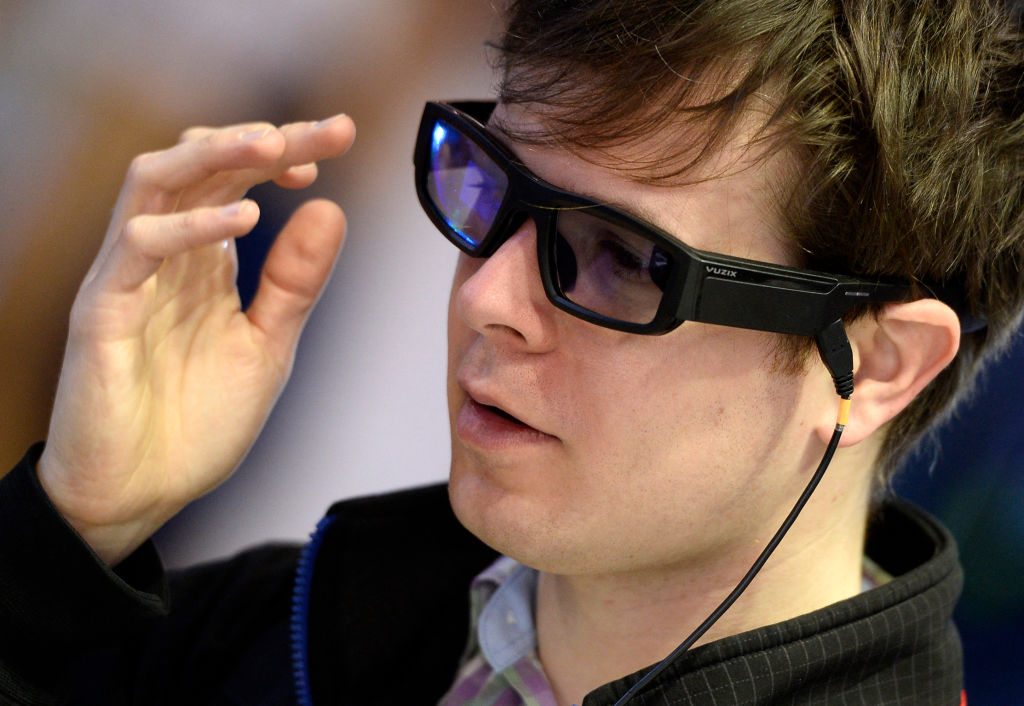
Researchers at Stanford University have developed a groundbreaking augmented reality (AR) system that integrates holographic imaging into ordinary glasses, providing users with a vibrant and immersive 3D viewing experience. The AR headset appears like regular glasses to the outside world, but overlays full-color, moving 3D images on the lenses. This technology overcomes the bulky optics and unsatisfactory visual experiences typically associated with AR systems. The key to the system's success is its use of holography, which creates a lifelike 3D image with a full 3D volume in front of each eye. The applications for this technology are vast, including fields such as education, training, healthcare, and entertainment. This breakthrough has the potential to revolutionize wearable technology and enhance user experiences in various industries.
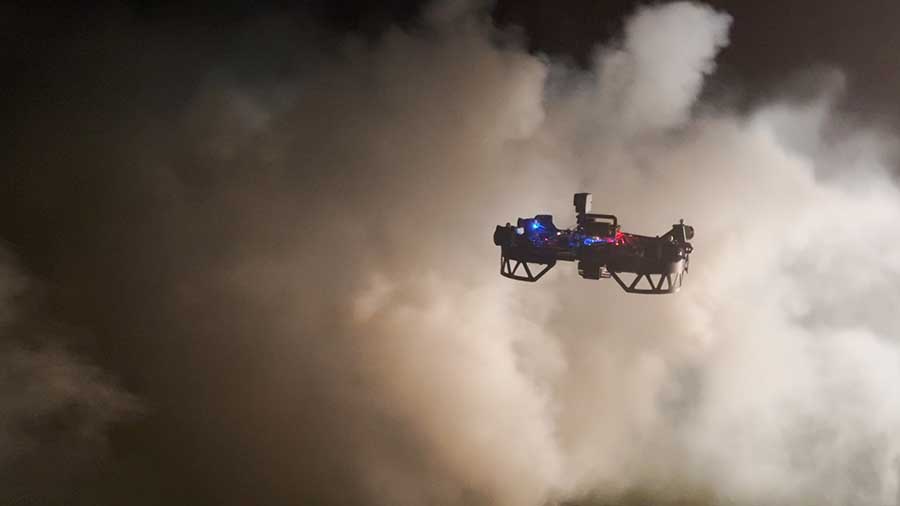
Controversial drone company Xtend has raised $40 million in a new funding round, bringing its total raised to $65 million. The company provides a platform that allows operators to manage drones and robots, enabling them to control the machines directly or train AI models for autonomous operations. Xtend's technology is aimed at industries such as public safety and logistics, with a focus on military, defense, and law enforcement applications. However, the company's involvement in defense and law enforcement has raised concerns about privacy and surveillance. Xtend has contracts with the Israel Defense Forces and the US Department of Defense, and its drones have been used for tasks such as reconnaissance and explosive payload delivery. With the new funding, Xtend plans to expand its workforce and pursue international expansion, particularly in Japan.


Specialty chemical company Lubrizol is showcasing its LIPOFER microencapsulation technology and introducing a new EU food-grade approval for its Carbopol Polymers at Vitafoods Europe 2024. The LIPOFER microcapsules are designed to deliver iron in an optimized way, overcoming issues such as off-taste, reactivity, and color change. The technology enhances iron absorption with low gastric irritation and provides a pleasant taste. Consumer studies have shown that LIPOFER formulations have a milder metallic aftertaste compared to standard iron formulations. Lubrizol's Carbopol Polymers for nutraceuticals offer multifunctional benefits, including creating a convenient way to make tablets smaller and easier to digest. These polymers also ensure stable, sustained release or suspension of active ingredients for consistent delivery of nutraceutical benefits. The new EU food-grade approval for Carbopol Polymers allows nutraceutical manufacturers to differentiate their products and create unique product claims.

AI-generated deepfake images of Katy Perry and Rihanna at the Met Gala fooled some fans into thinking the stars were in attendance. The images quickly spread online, with some users noting discrepancies that suggested the images were likely created using artificial intelligence. Katy Perry herself reposted the images on her Instagram, jokingly commenting that the AI had fooled her own mother. Representatives for Perry did not provide further comment on why she wasn't at the event. Meanwhile, a fake image of Rihanna in a white gown also circulated online. While these instances may seem harmless, they highlight growing concerns around the misuse of AI technology. There have been more serious and detrimental uses of deepfake technology, including the creation of sexually explicit and abusive fake images. Experts emphasize the need for corporate accountability, industry standards, and government regulation to protect individuals from potential harm.

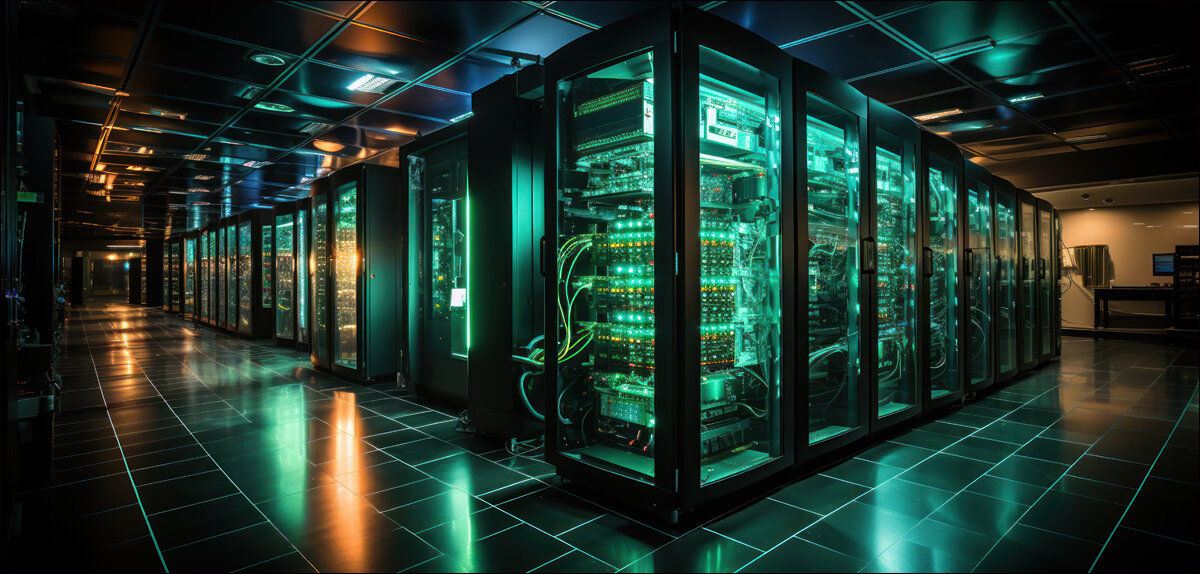
Edge computing is a technology that brings data processing closer to the source of data generation, enabling real-time decision-making. It reduces latency, enhances performance, and supports instant insights across industries. By processing data locally, edge computing addresses the limitations of bandwidth, latency, and connectivity associated with centralized cloud computing. Data centers, traditionally seen as the heart of computing infrastructure, are evolving to support edge computing architectures. They act as anchor points within the edge computing framework, providing backup, storage, and advanced processing capabilities. Incorporating data centers into edge computing brings scalability, security, reliability, and advanced processing capabilities. However, there are challenges in implementing edge computing in data centers, such as complexity, data synchronization, security, and cost. Despite these challenges, the integration of edge computing with data centers is essential for leveraging the full potential of real-time data processing and smart decision-making. Real-time decision-making, powered by edge computing, brings reduced latency, improved operational efficiency, enhanced security measures, and more personalized customer experiences. Examples of applications include healthcare, manufacturing, retail, smart cities, autonomous vehicles, cybersecurity, logistics and supply chain, gaming and entertainment, energy and utilities, agriculture, and financial services. The synergy between edge computing and IoT enhances data security, scalability, and on-device analytics capabilities. Future trends in edge computing include the rollout of 5G networks, the integration of AI and ML, and advancements in quantum computing. Ubiquitous computing, enhanced security measures, and sustainable edge solutions are predicted for the future of edge computing. Overall, edge computing is revolutionizing data processing and enabling smarter, more autonomous systems.
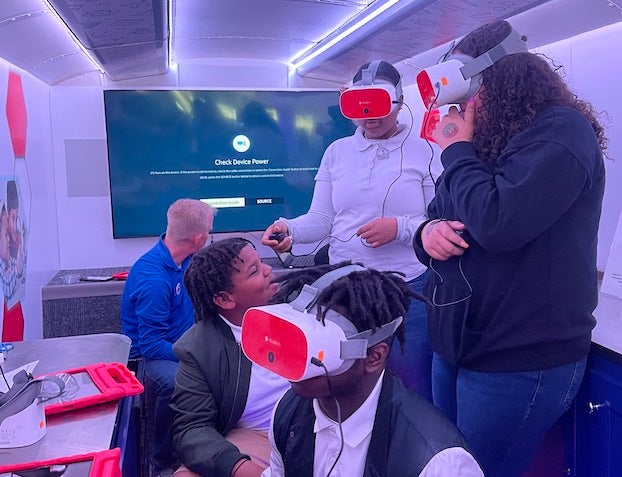
The new Mobile Makerspace is a unique classroom on wheels that aims to introduce students to high-tech tools and skills to prepare them for future careers. The Mobile Makerspace is decked with technology and resources and made its first stop at Oak Park Middle School. Here are some highlights from the article:
• The concept of a one-of-a-kind classroom on wheels has been in the works for five years.
• The Mobile Makerspace is designed to enhance individual schools' curricula with technology.
• CPSB technology facilitators work with school staff to determine what technology will coincide with the classes' lessons and schedule bus visits.
• The goal is to lay down an energetic foundation for students and develop their STEM skills.
• Accessibility to technology is vital for students' future careers, and initiatives like the Makerspace will make students marketable for Calcasieu's industry-rich workforce.
• The Mobile Makerspace will be making stops throughout the district and will also be parked at community events in partnership with the City of Lake Charles this summer.

The Apple Vision Pro, a spatial headpiece, has found success in the automotive, filmmaking, and healthcare industries since its release in March. Porsche has become one of the device's most valuable customers, using the Vision Pro in its showroom to allow prospective buyers to view different color options in virtual reality. The high-resolution displays of the headset have enhanced the customer experience and provided a new dimension to Porsche's showroom. The Vision Pro has also made an impact in the healthcare industry, with Dr. Tommy Korn using it to improve surgical eye care through simulations and visualizations. Additionally, filmmaker Jon M. Chu has used the Vision Pro to oversee the post-production process for his upcoming film. The Vision Pro's success in these industries sets it apart from other similar devices on the market. It will be interesting to see what updates and industrywide acceptance Apple announces in the future.


In a recent report, Ofcom, the UK broadcasting and telecommunications regulator, has stressed the importance of changing social algorithms to ensure the protection of children online. The research shows that algorithms widely used by social media platforms do not prioritize the welfare of children, often exposing them to harmful content and risky situations. Let's dive into the highlights:
• Ofcom argues that social algorithms need to be rethought and revamped to prevent the excessive exposure of children to inappropriate content.
• The report highlights the growing concern over the impact of algorithms on young people's well-being, including the risk of cyberbullying and the pressure to conform to unrealistic body standards.
• Ofcom demands that social media companies bear the responsibility for protecting children online, as these platforms often rely on algorithms to keep users engaged.
• The regulator suggests implementing measures such as age-appropriate design codes to create a safer digital environment for children.
• Ofcom's report calls for collaboration between regulators, platforms, and government bodies to address these issues effectively, enhancing children's safety online.
Overall, Ofcom's report emphasizes that social algorithms must adapt and prioritize child protection in order to create a safer and healthier online experience for our youngest digital citizens.

The Owlet Dream Sock is an FDA-approved baby sleep tracker that goes beyond your standard baby monitor by tracking your child's heart rate, blood oxygen, and sleep patterns. It is a wearable sock that tracks sleep patterns, oxygen levels, and heart rate, and alerts your smartphone if anything reads unusually. The Owlet Dream Sock is especially helpful for parents who are concerned about sudden infant death syndrome (SIDS) or have a history of febrile seizures in their family. It can provide peace of mind and help parents rest easier at night. The sock is worn by the baby while they sleep and tracks their heart rate and oxygen levels to map their sleep stages. The app allows you to view your baby's sleep patterns, track changes over time, and receive alerts if there are any deviations from the baseline readings. The Owlet Dream Sock retails for $299 and can be purchased with HSA or FSA funds.

Be Your Best is a VR football app that develops hyper-realistic simulations to test and enhance the reactions and cognitive abilities of football players. Through AI-driven simulations, players can experience a first-person perspective on the pitch and earn points for their perception, awareness, and cognitive ability. The platform allows players to train without physical load, making it ideal for injury recovery and travelling. Be Your Best aims to provide players with a unique opportunity to learn kinetically by recreating real-game scenarios.
Highlights from the article:
• Be Your Best is the only company that enables athletes to train in VR with a realistic match experience.
• The company has experienced rapid growth, with 30% monthly subscriber and revenue growth.
• Be Your Best aims to impact the future of football training and performance through their technology.
• They are already seeing technology being implemented to improve fan experiences and player monitoring in training.

The adoption of generative AI in contact centers is revolutionizing customer service by enhancing operational efficiency and offering more personalized interactions. According to Gartner, 42% of generative AI initiatives are focused on transforming customer experiences. A recent market study conducted by Customer Contact Week (CCW) found that contact center leaders are relying on generative AI to improve self-service and meet the demand for personalized interactions, with 71% of consumers expecting personalized interactions. The study also revealed that contact center leaders are confident in the positive impact of generative AI, with the majority planning investments and implementation in 2024. However, there are challenges to consider, such as designing user-friendly AI tools that encourage adoption and address data privacy concerns. Contact center leaders also need to be mindful of potential risks and workforce implications to fully capitalize on the benefits of generative AI.
Some key takeaways from the article include:
• 42% of generative AI initiatives focus on improving customer experiences
• Contact center leaders see generative AI as a tool to enhance operational efficiency and customer satisfaction
• Self-service options need to improve in terms of personalization and value
• Data privacy is a significant concern in the adoption of AI in contact centers
• Agents have concerns about job security and the potential for less personalized service with AI implementation.
